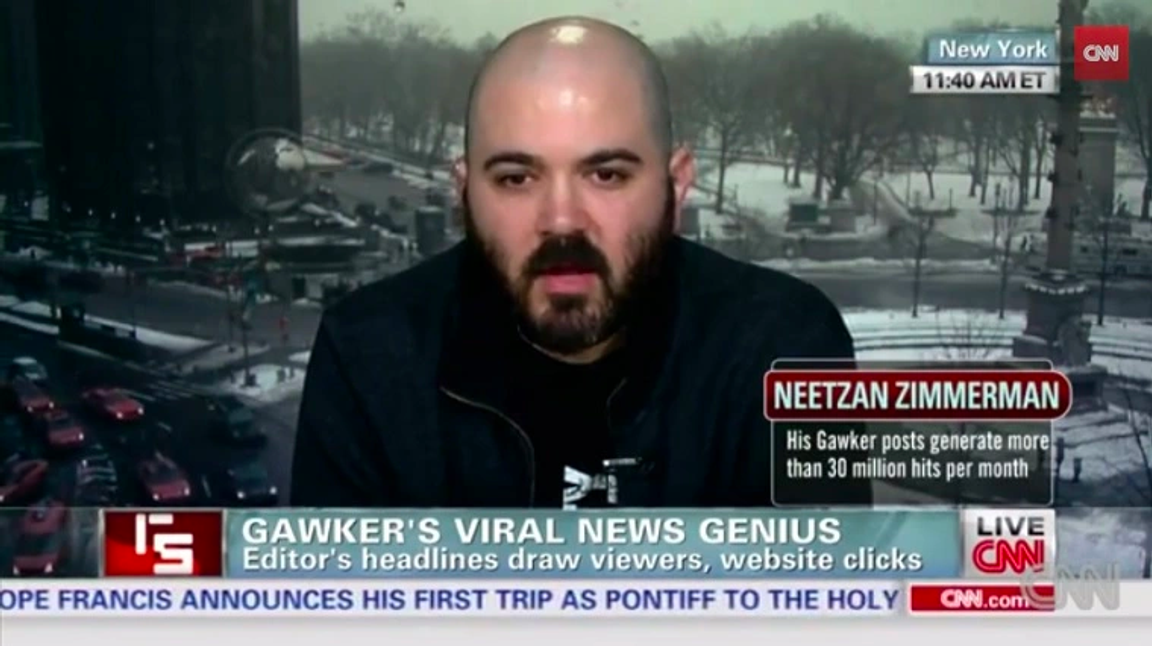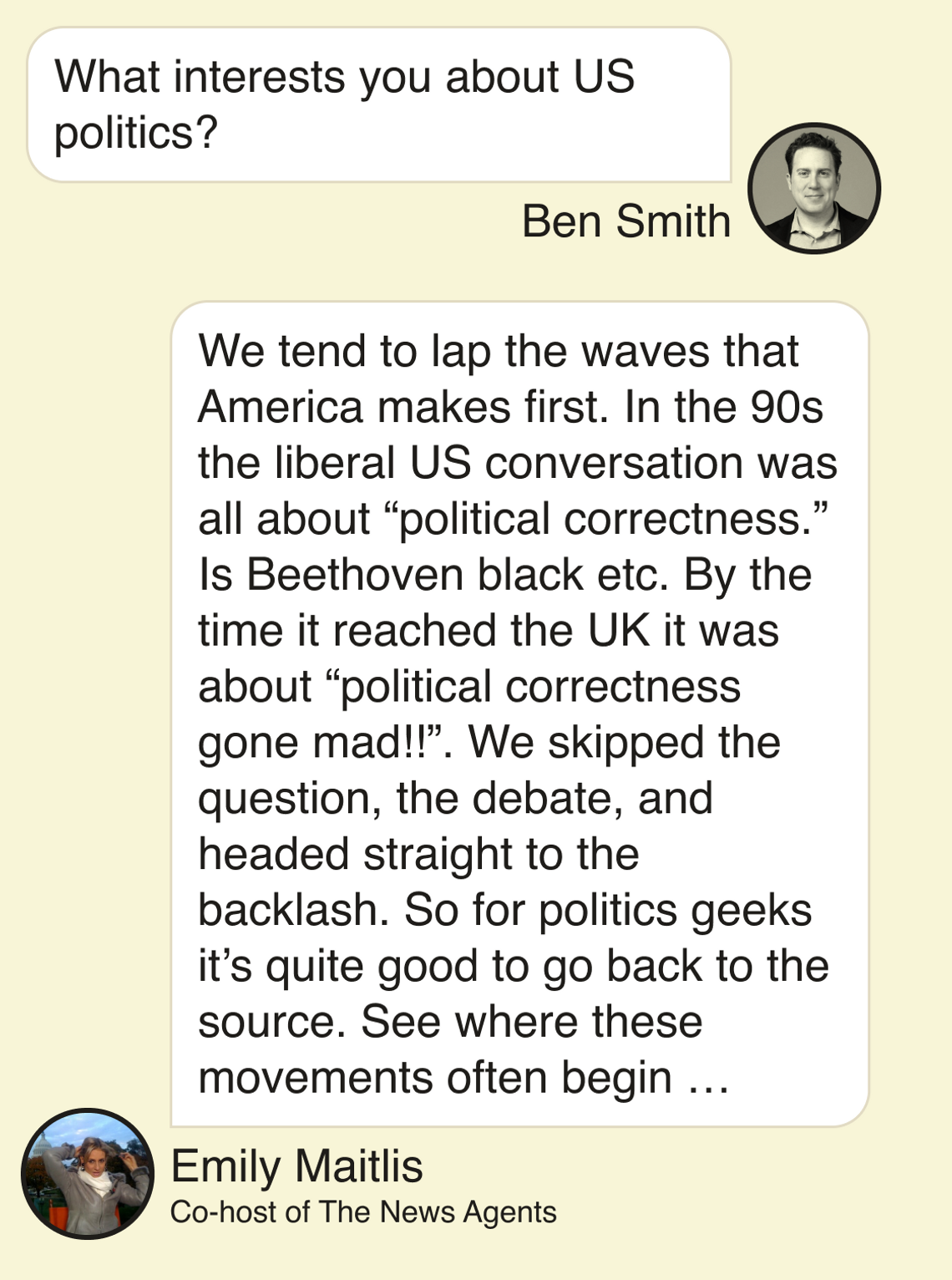 THE NEWS Months before the launch of The Messenger’s news website earlier in May, its newly minted Chief Growth Officer, Neetzan Zimmerman, sought to recruit BuzzFeed’s Katie Notopoulos and The Washington Post’s Taylor Lorenz, among others. Zimmerman, himself a star of the meme-happy early days of online media 15 years earlier, told them he was trying to build a team of stars to recapture the best of the old blogosphere. He also mentioned to one potential recruit that he was in a hurry. He wanted to get the hires in place before the publication’s founder, Jimmy Finkelstein, hired an editor-in-chief who could overrule him. The Messenger launched two weeks ago promising huge traffic and centrist politics. The site’s traffic-mongering style drew puzzlement from its peers, and three editors quit abruptly, complaining that Zimmerman had them mindlessly, unreasonably churning out stories. KNOW MORE The high-profile launch turned the 41-year-old, who lives in San Diego with his wife, daughter, and corgi, into a figure of some fascination in American journalism, well beyond the lost online world where he was an early star. But to understand what’s happening requires returning to 2008, when the hot media property was a venture-backed meme site called “I Can Has Cheezburger?” Cheezburger founder Ben Huh, hungry for more traffic, thought he could find some on Zimmerman’s blog, The Daily What, which was feeding memes to the masses. “The dude had a tolerance from pain that was higher than anyone I’d ever seen,” recalled Huh in an interview from Brazil, where he was at an offsite for his Web3 project. He was impressed by the long hours Zimmerman pulled at his desk, in a state of total focus. “He was the birth of human-API journalism.” Cheezburger acquired The Daily What for a reported five-figure sum (those were the days), along with stories that were sometimes irresistible, and sometimes both salacious and incredibly stupid. (Headlines that repelled Semafor’s editorial assistant when I asked her to trawl his archives last week included: “Two Raccoons Get Busy in Family’s Backyard” and “Australian Woman Flashes Google Street View Car.“) “It might be that right now, people don’t care about stories about cats that much, and instead, sloths are more popular,” he explained to a fascinated Farhad Manjoo. “So I’ll have a rule — cats are out, sloths are in, focus on sloths because that’s going to be your meal ticket.” Meanwhile, the competition for traffic was heating up across the internet. In January of 2012, Gawker’s editor, A.J. Daulerio, announced an experiment in which each editor would be assigned a day of “traffic-whoring duty,” posting clicky nonsense so the others could work on more serious stuff. Gawker hired Zimmerman, who was soon responsible for more than 90% of its traffic, staffers recalled. He wrote the top post of 2013: “Here’s The First Clip From Farrah Abraham’s ‘Sex Tape’ [NSFW].” When he left in 2014, Gawker editors panicked. But he was happy to share his formula for finding hot stories and jumping on them — he’d written openly about it. It turned out to be fairly easy to copy, and traffic mostly held up. The owner of The Hill, Jimmy Finkelstein, hired Zimmerman in 2015 to bring the fusty Beltway newspaper into the traffic game. There, he perfected that formula: One side gets the traffic while the other generates the prestige. The Hill was the fastest-growing site that year, and Finkelstein sold it for $130 million in 2021, in part on the strength of its traffic. BEN’S VIEW Zimmerman and The Messenger got a skeptical reaction from many of their peers because they’re throwbacks — most immediately, to an era in which news sites grew large by harvesting traffic from Facebook and Google. Now Facebook focuses on serving videos, and AI chatbots are posing an existential threat to the search business. Zimmerman told me he survived the shifting internet, in part, because he never viewed the search for traffic as some kind of technical trick to game Facebook or Google. “If you understand that platforms come and go, and that your primary responsibility is to provide your reader with interesting, engaging, and accessible information regardless of where they happen to be, then you will always be one step ahead of those forces that are beyond your control,” he said in an email. But his endurance is, I think, also because he never developed a distinct voice or a brand or point of view. His biography — he was raised on a left-leaning kibbutz and did his compulsory service for the Israeli Defense Forces in Gaza before moving to the U.S. to study at Boston University — seems incidental. The most memorable things he has written are about his own philosophies of traffic. One friend of Zimmerman’s recently told me he is “the most cynical person I know in the business.” And that was, in the end, an Achilles heel of the traffic era of media. If the thing you’re best at is reflecting the audience back to itself — what’s your identity? And the Messenger’s launch is quixotic because it seems built simply to hold a mirror up to that mass audience, presenting clicks as centrism. But I’d be lying if I didn’t see the appeal, and even the charm. Discovering things online, and sharing them with others, is a generational habit. The Messenger tends toward lurid crime, not harmless fun. When I glanced Sunday night at the home page, Zimmerman’s hand was visible. “Fans Remember Harambe 7 Years After Death in Gorilla Enclosure,” the second headline in the right column announced. Reader, I clicked. ROOM FOR DISAGREEMENT The conventional wisdom about the death of scaled digital media is premature, said Jeremy Liew, a partner at Lightspeed Venture Partners for whom Zimmerman briefly worked. “AI isn’t going to stop people using social; folks always overestimate the speed of change because habits change slower than technology does,” he said in an email. NOTABLE - Zimmerman’s 2012 “This Is How You Make Something Go Viral: An Impractical Guide” is a glimpse at that era’s internet, and at the inside of the author’s mind: “In the end, the Internet will always tell you what you need to know because it is a digital extension of the world writ large, and out there, as in here, the greatest story will always be retold.”
- Finkelstein talked to Vanity Fair’s Joe Pompeo last week. The Messenger is “not a tabloid…It is a very serious publication that will also have lots of fun articles in it.”
- In 2013, Gawker’s founder Nick Denton raised questions about the veracity of one of Zimmerman’s viral stories. “People don’t look to these stories for hard facts and shoe-leather reporting. They look to them for fleeting instances of joy or comfort. That is the part they play in the Internet news hole,” Zimmerman responded.
— with additional reporting by Emily Nadal | 





